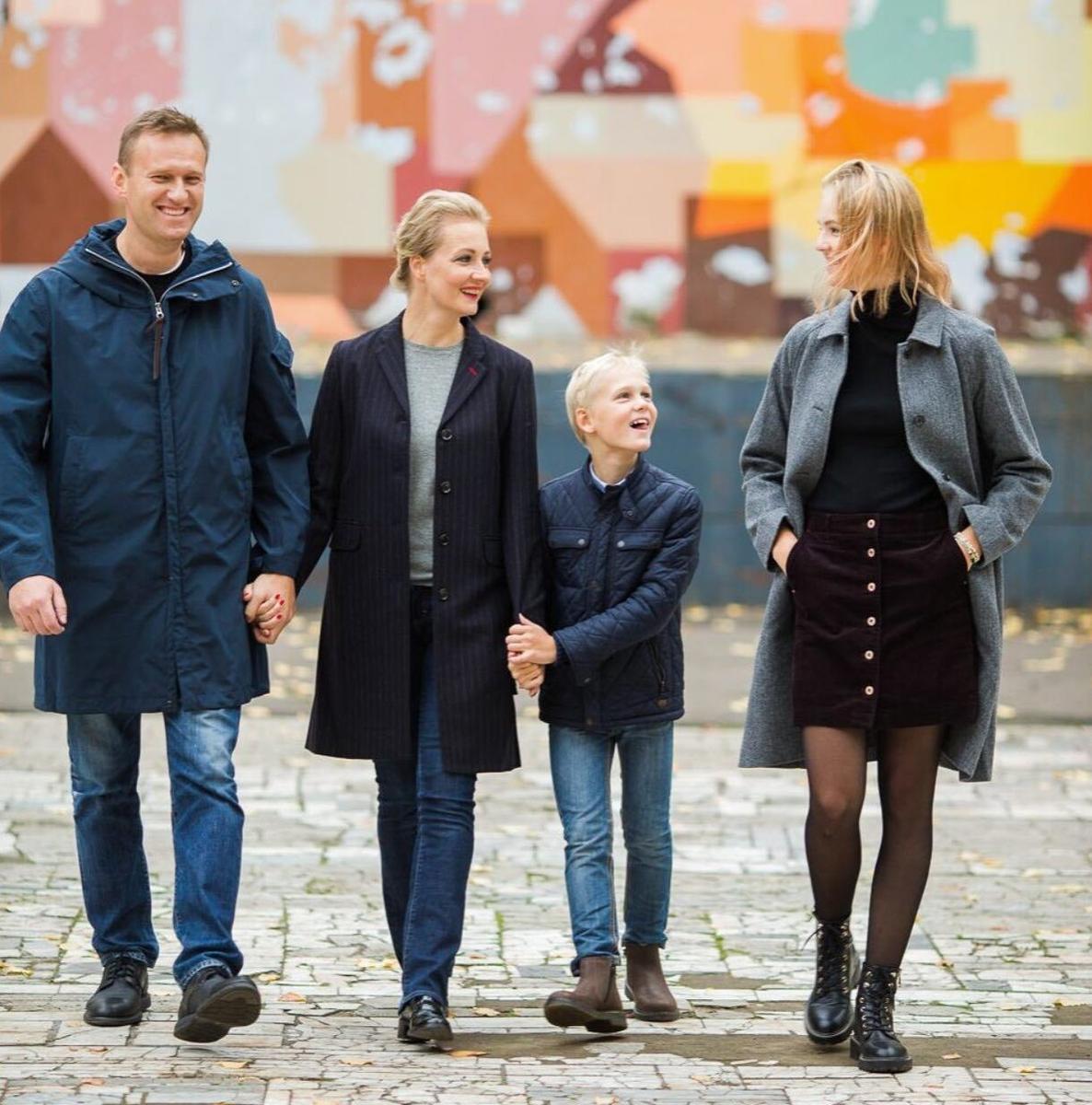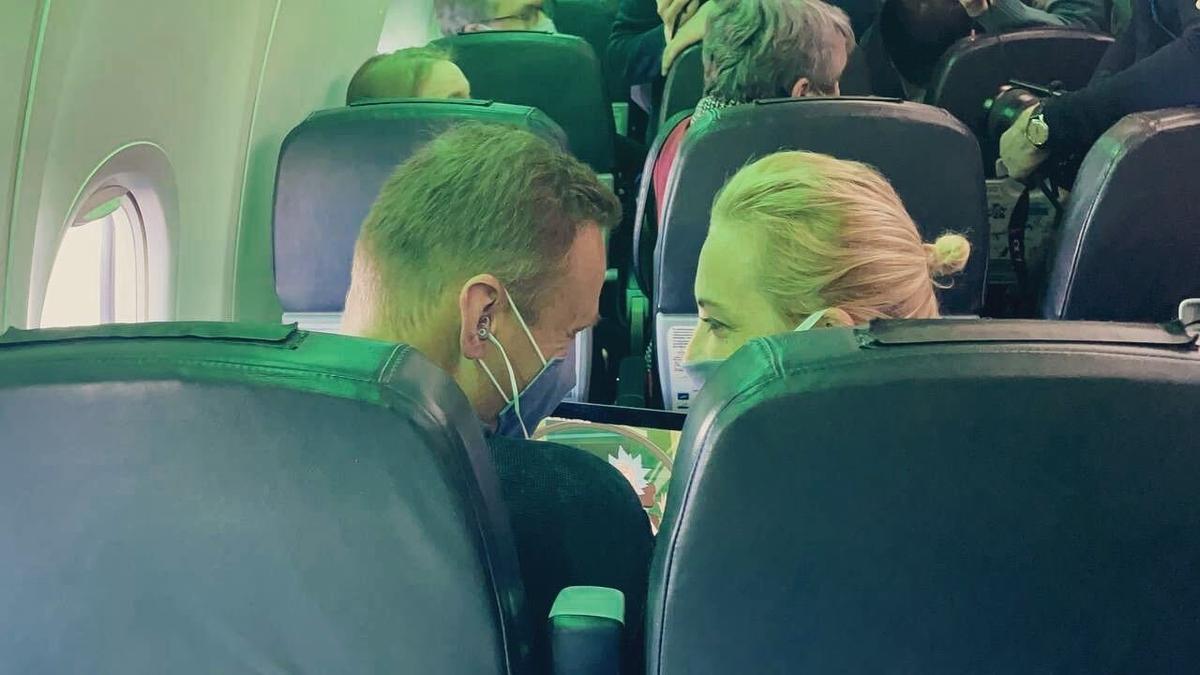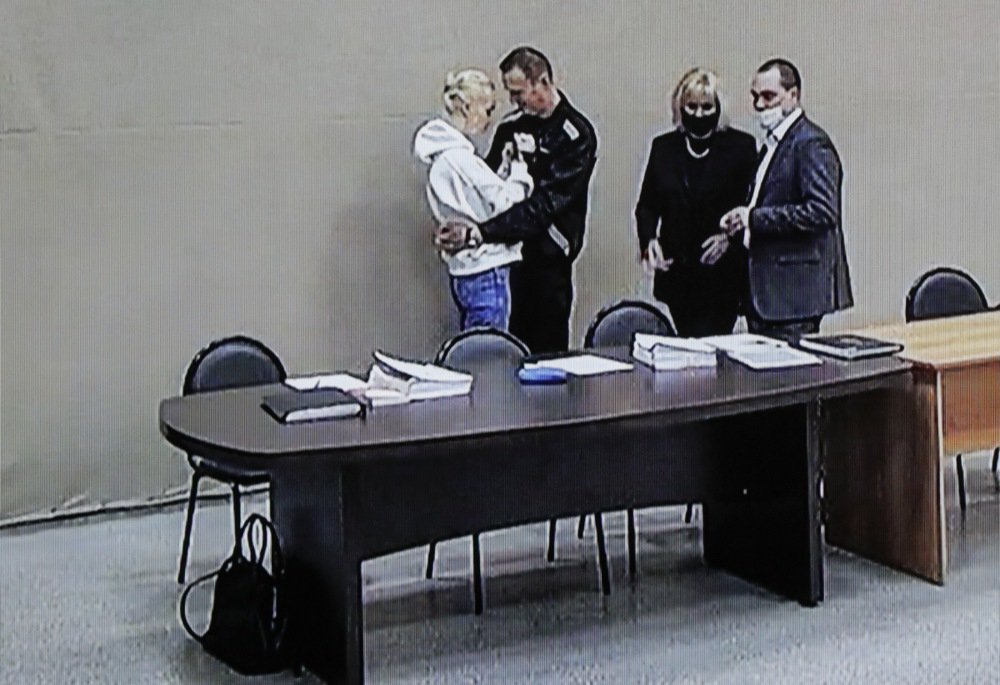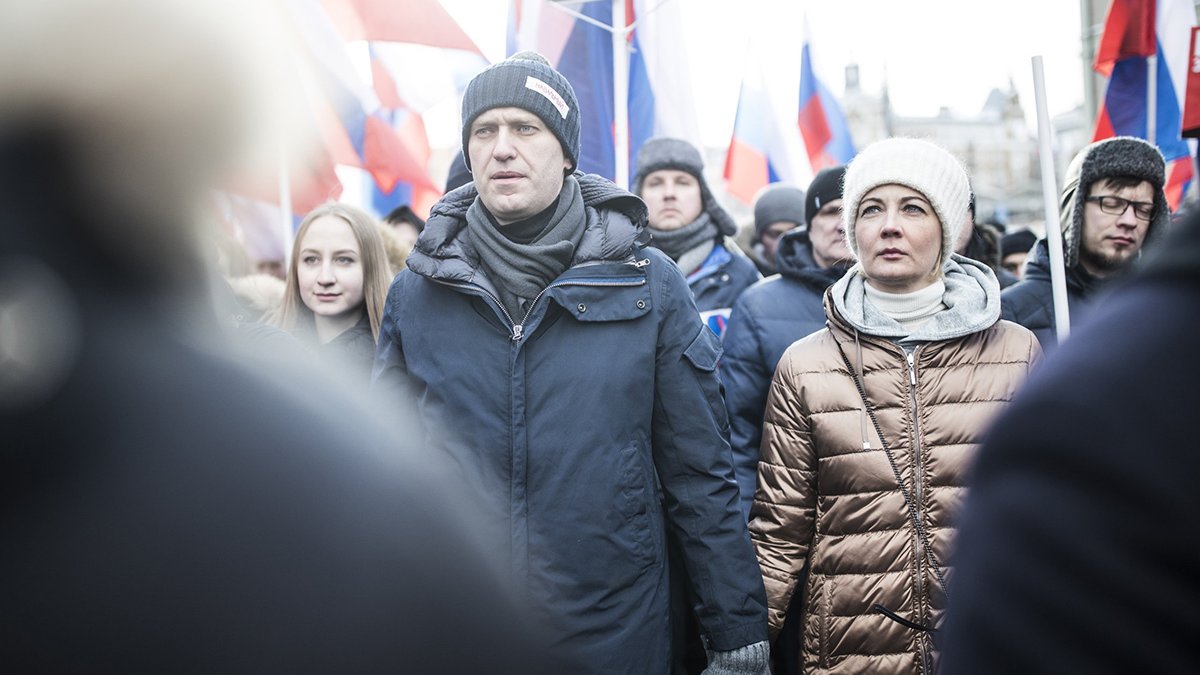Hours after reports of Alexey Navalny’s death in an Arctic penal colony emerged on 16 February, Yulia Navalnaya emerged as a political force to be reckoned with, with the world placing bets on her future role as a leader of Russia’s famously splintered opposition.
After posting a powerful video last week in which she pledged to continue her murdered husband’s work, her rage and pain on view for all to see, Navalnaya went on to urge EU leaders to not recognise the results of Russia’s presidential elections in March.
Before Navalny’s death, Navalnaya had always remained in the background and had resisted any efforts to make her a political figure in her own right. She and her husband both rejected calls for Navalnaya to be nominated in her husband’s place to stand in Russia’s 2018 presidential elections after he was barred from running.
Nonetheless, Navalnaya played a vital role in her husband’s two-decade-long political career, and has significant experience in the challenges faced by anyone who takes on the Kremlin. In the worst imaginable circumstances, she now finds herself alone in the political spotlight, but might she be the unifying shot in the arm the Russian opposition so desperately needs?
‘Looking in the same direction’
Yulia Abrosimova was born in Moscow on 24 July, 1976, to a researcher father and a mother who worked at a government ministry. Before meeting her future husband, Navalnaya graduated with an economics degree, interned in Denmark, and worked in a bank in Moscow.
She and Navalny met while on holiday in Turkey in 1998, when both were 22 years old. Two decades later, Navalny recalled this first meeting: “I thought: I’m going to marry that woman. And I did marry her. … We have been looking in the same direction for 20 years now.”
The Navalnys married in August 2000 and had a daughter, Daria, in 2001, and a son, Zakhar, in 2008. Before having children, Navalnaya ran a small business selling wicker furniture made by Navalny’s parents.
When Navalny’s political career began, Navalnaya quit her job to support him. “It became apparent that all Alexey could think of was politics,” she said in an interview later.

The Navalny family. Photo: Yulia Navalnaya’s Instagram
From 2011 until his poisoning and final arrest in 2020, Navalny was regularly detained, spending over 200 days in pre-trial detention facilities and jokingly calling Navalnaya a “pro” at helping him get his things together whenever he was arrested.
Navalnaya always encouraged Navalny to continue with his work, despite the evident toll it took on him, asking in a joint 2020 interview with her husband after his poisoning:
“How can you tell someone who is making himself sick that enough is enough when he is making the world a better place?”
“If you heard what Yulia said, you would understand that I am in fact a very moderate politician,” Alexey said in the same interview, adding that Navalnaya was far more “radical” than he was, and this was no joke.
In 2018, after Navalny’s Anti-Corruption Fund accused the head of the Russian National Guard Viktor Zolotov of fraud, Zolotov publicly challenged Navalny to a duel.
As Navalny was in a detention facility and therefore unable to respond to the video himself, Navalnaya responded on his behalf.
“This is a threat from an arrogant thug who is revelling in his own impunity,” Navalnaya wrote on Instagram, adding that she saw Zolotov’s challenge as not only as a threat to Navalny, but also to the rest of her family.
“The only feeling I have towards Zolotov is contempt. I hate him,” Navalnaya said, calling Zolotov a coward for posting the video at a time when he knew Navalny would be unable to respond. Zolotov did not respond to Navalnaya.
Poisoning
When Navalny was poisoned in August 2020, his press secretary Kira Yarmysh initially told Navalnaya that it wasn’t a serious incident and that she didn’t need to come and see her husband. But Navalnaya headed straight to the airport and bought a ticket to Omsk, where Navalny was in hospital. Upon arrival, she learned that Navalny was in a coma on a ventilator.
“I couldn’t contain my emotions,” she recalled. “I put on some sunglasses and ordered a double shot of whiskey at eight in the morning.”
She also recalled the corruption of the hospital employees and the fact that the chief doctor had been a member of the ruling United Russia party: “He was afraid to say the wrong thing, his hands were shaking. He wasn’t afraid for the patients — he didn’t even care about the patients. He was afraid of what his superiors would say.”
In a letter to Putin, Navalnaya demanded her husband’s release so that he could receive treatment in Germany. The Kremlin eventually agreed to allow Navalny to leave, apparently in the belief that he would not return to Russia.
In January 2021, however, Navalny did return to Russia. He was immediately arrested, tried and sent to a penal colony to serve a sentence that was later compounded by additional sentences after being found guilty on multiple other charges.
Navalnaya maintained a brave face. “There is nothing we can’t handle,” she wrote on Instagram. “Everything will be okay.”

Alexey and Yulia Navalny on the flight from Berlin to Moscow in 2021. Photo: Instagram
Prison
When Navalny was refused medication for acute back pain in prison, Navalnaya called the authorities’ treatment of her husband a type of “personal revenge”. She again demanded that Putin release her husband for medical reasons.
Navalny often sent messages to his wife through his lawyers, sometimes also posting them on his social media. On Valentine’s Day 2021, he wrote: “I love you. I joke around in court so that I can hear you laugh.”
In February 2022, Navalny was put on trial for “fraud” and “contempt of court”. At first, neither Navalnaya nor members of the press were not allowed into the courtroom, but after an international outcry, Navalnaya was permitted to attend the trial and speak to her husband.

Alexey and Yulia during a court hearing in February 2022. Photo: EPA-EFE/YURI KOCHETKOV
She was subsequently granted a three-day conjugal visit, something the couple had been refused for a long time. After the visit, Navalnaya told her followers that her husband was “cheery and in high spirits”.
However, the period of apparent laxity soon ended: conjugal visits were again forbidden, and Navalny did not receive letters from his wife or the medicine she tried to send him. His right to phone calls was also unlawfully revoked.
In August 2023, Navalny was sentenced to 19 years in a penal colony for “extremism”. While serving his sentence, he broke records for the most time served in punishment cells, spending over 200 days in isolation.
A few months later, Navalny was deprived of legal representation when three of his lawyers were arrested and charged with “extremism” for doing their jobs. In December, Navalny was transferred to a penal colony in the Arctic Circle in the village of Kharp, from where he penned his final social media post on 14 February, which was fittingly a tribute to his wife, something he did every year on Valentine’s Day.
“I feel you close by every second, and I love you more and more,” he wrote. Two days later, while attending the Munich Security Conference, Navalnaya learnt of her husband’s sudden death in captivity.
“I’ve been thinking a lot about whether I should come here or not. But I thought about what Alexey would do. And he would want me to be here,”
she said just hours later in her speech to the conference.
Russian propaganda outlets immediately began launching ad hominem attacks on Navalnaya as the shock of his murder began to sink in. Citing the fact that at some point on that day she had smiled, and saying that her “body language” revealed her true feelings were ones of relief, the relentless attacks suggested just how much of a threat the Kremlin considers Navalnaya to pose.
Indeed, she has been reviled by state-controlled media in Russia for so long that she faces an uphill challenge if she plans to lead Russia’s disparate opposition. The road ahead will inevitably be fraught with dangers and challenges, but if there’s anyone equal to such a task, then it might well be Yulia Navalnaya.
Join us in rebuilding Novaya Gazeta Europe
The Russian government has banned independent media. We were forced to leave our country in order to keep doing our job, telling our readers about what is going on Russia, Ukraine and Europe.
We will continue fighting against warfare and dictatorship. We believe that freedom of speech is the most efficient antidote against tyranny. Support us financially to help us fight for peace and freedom.
By clicking the Support button, you agree to the processing of your personal data.
To cancel a regular donation, please write to [email protected]

